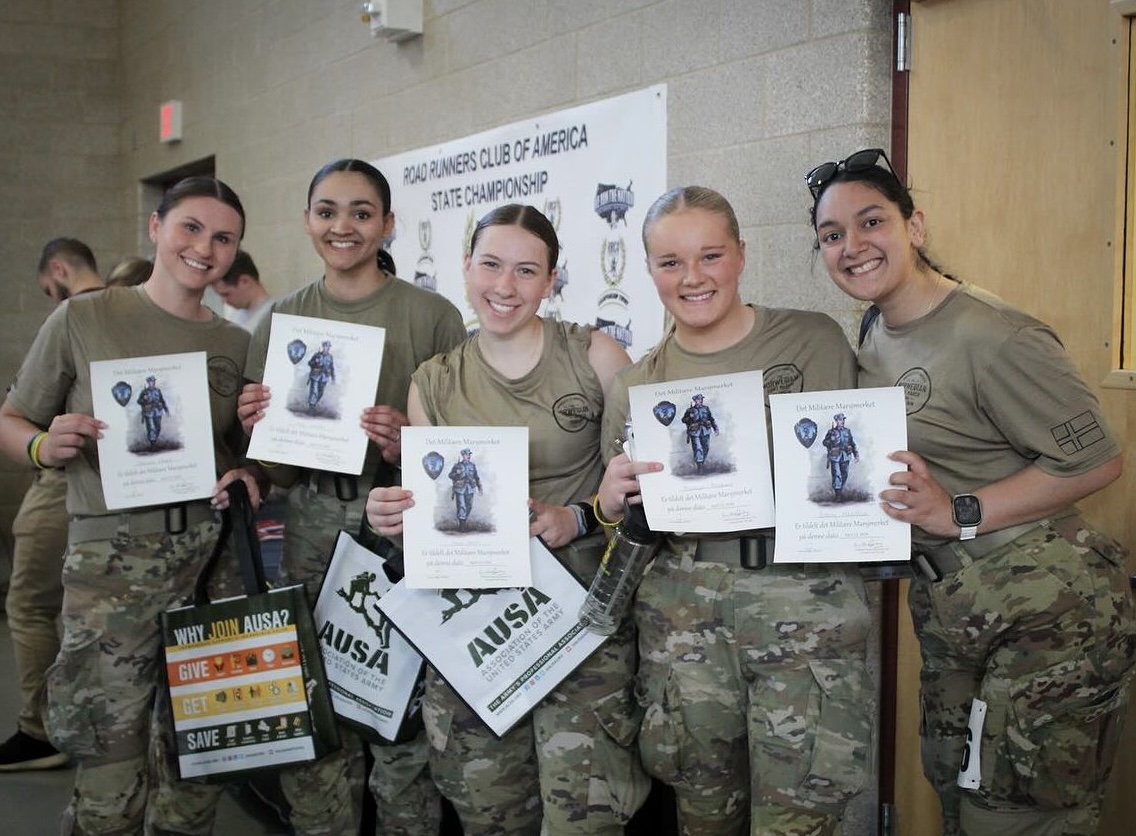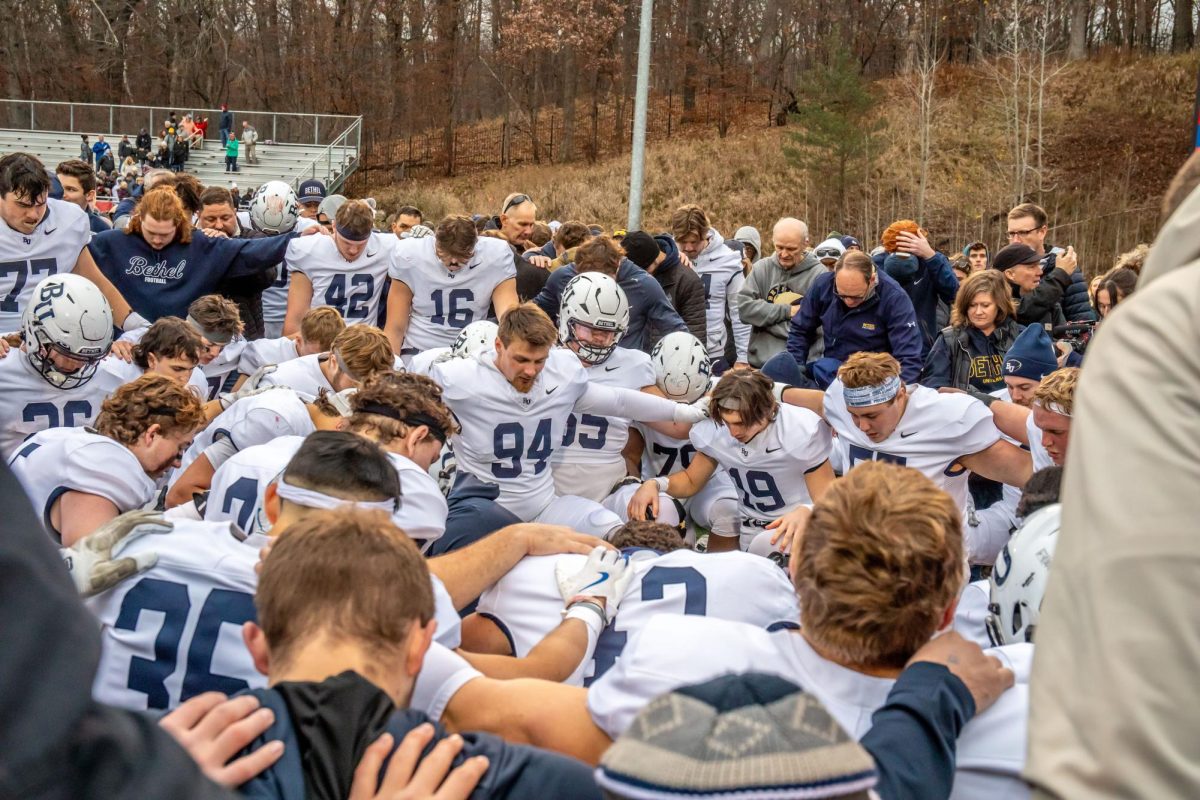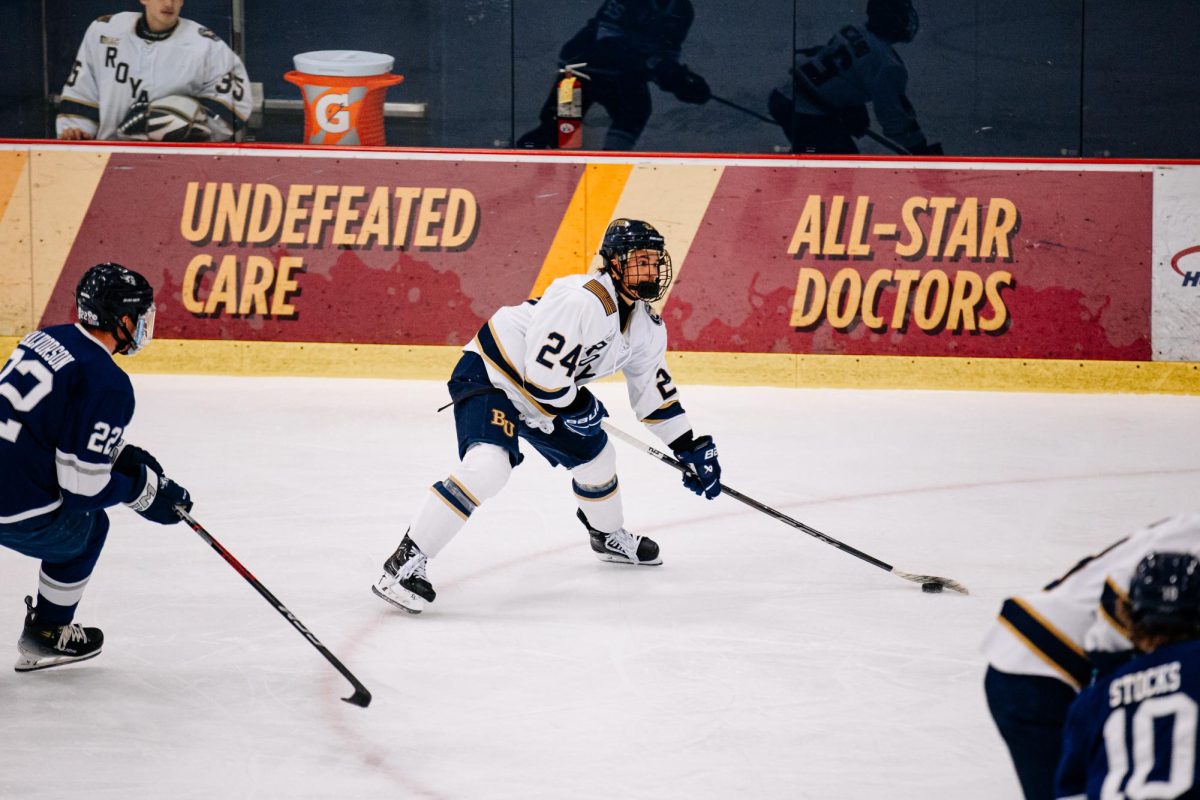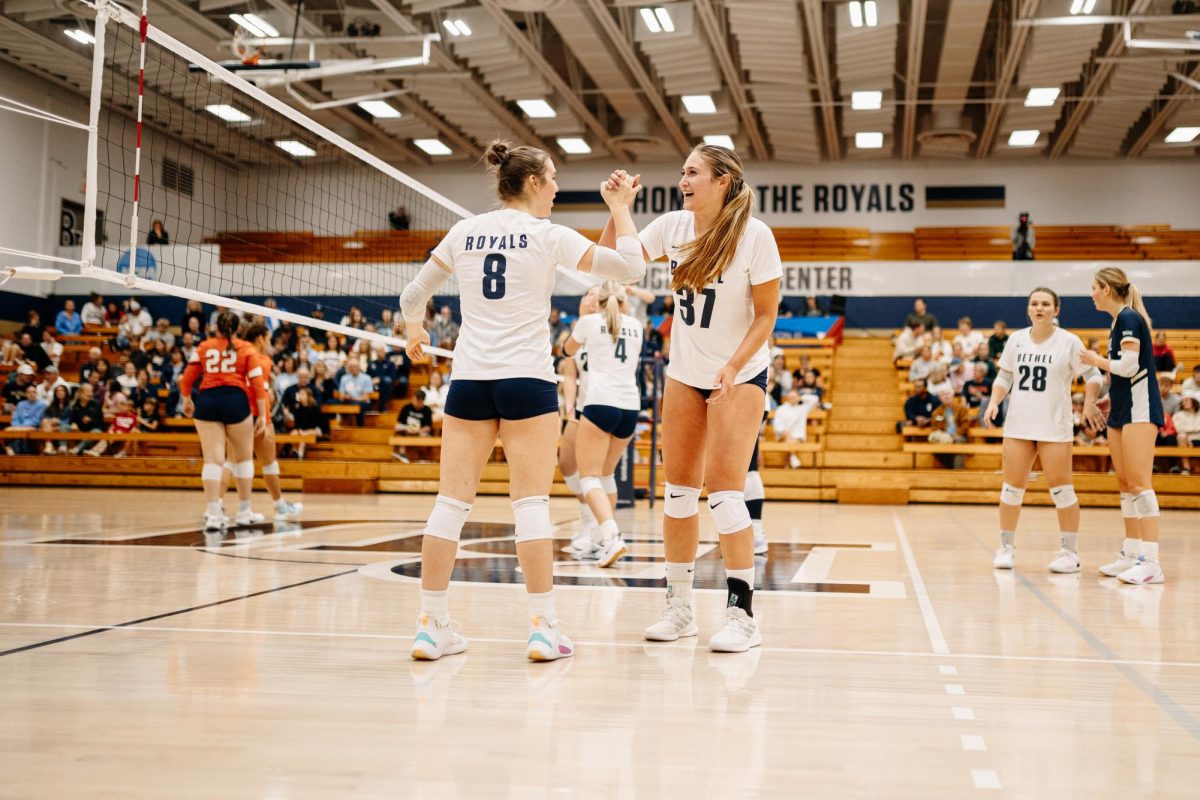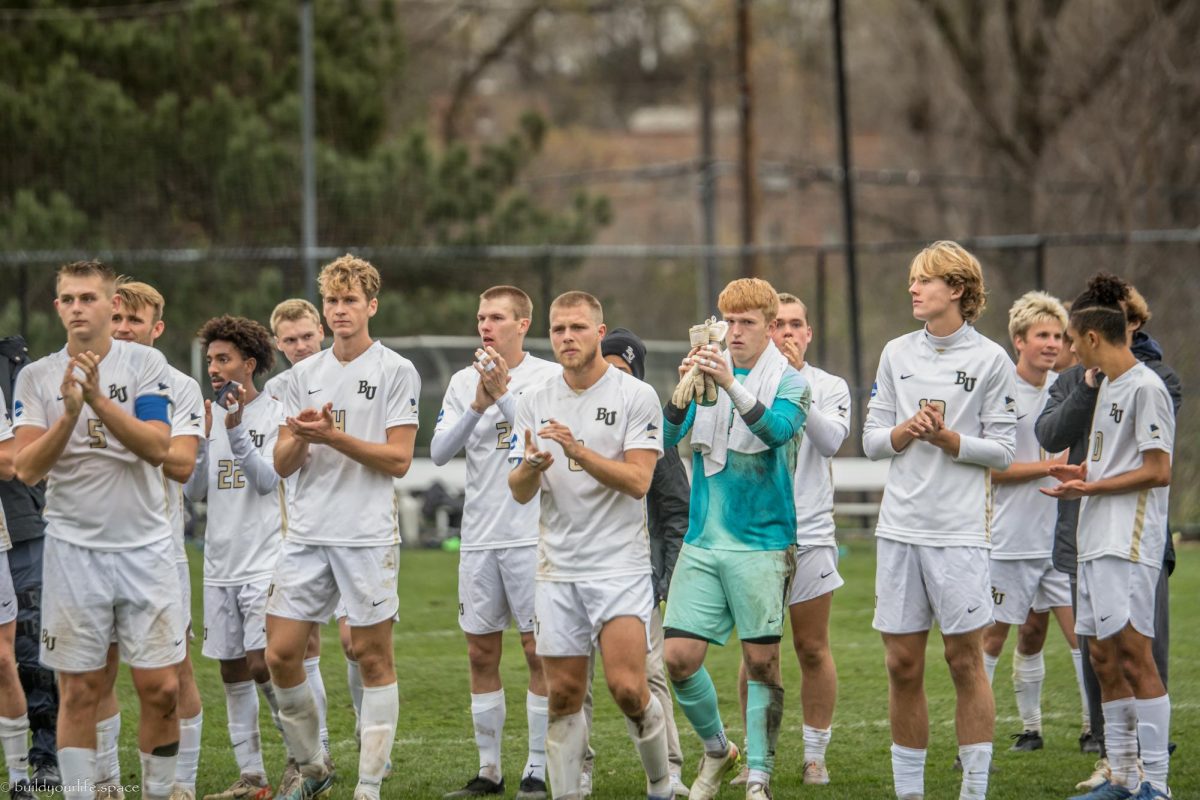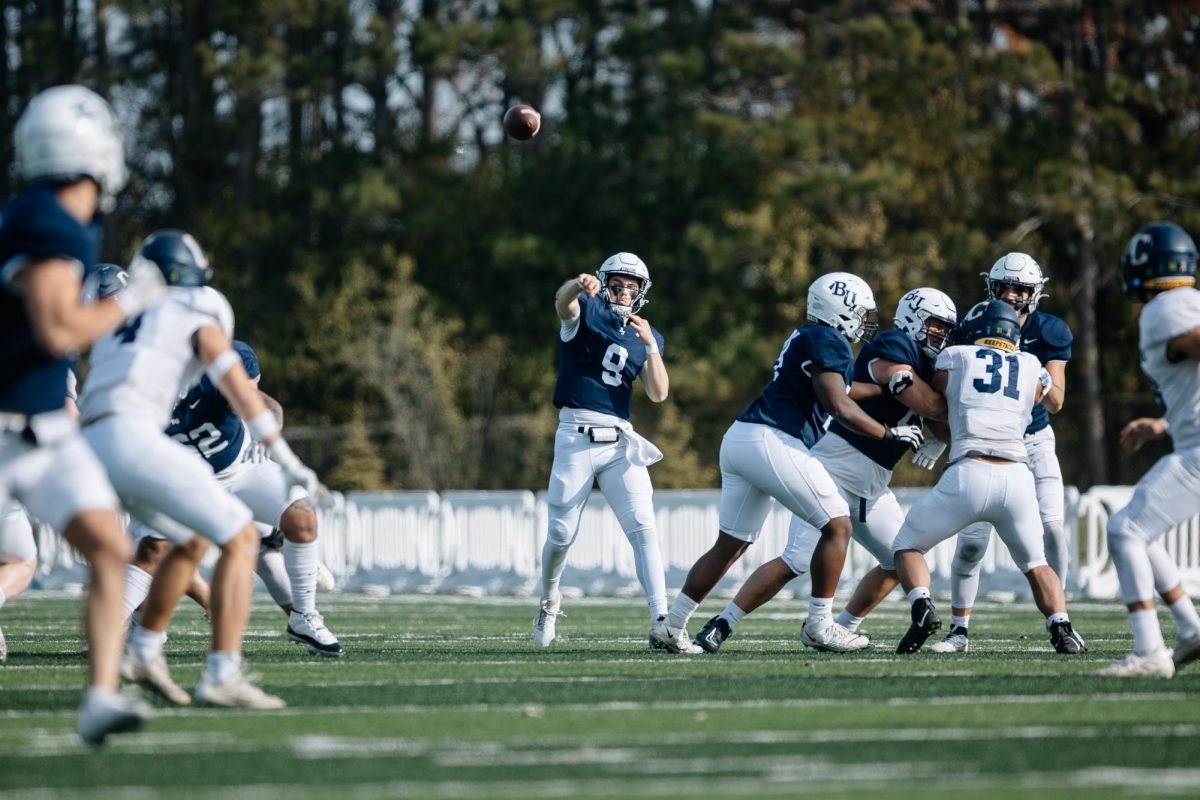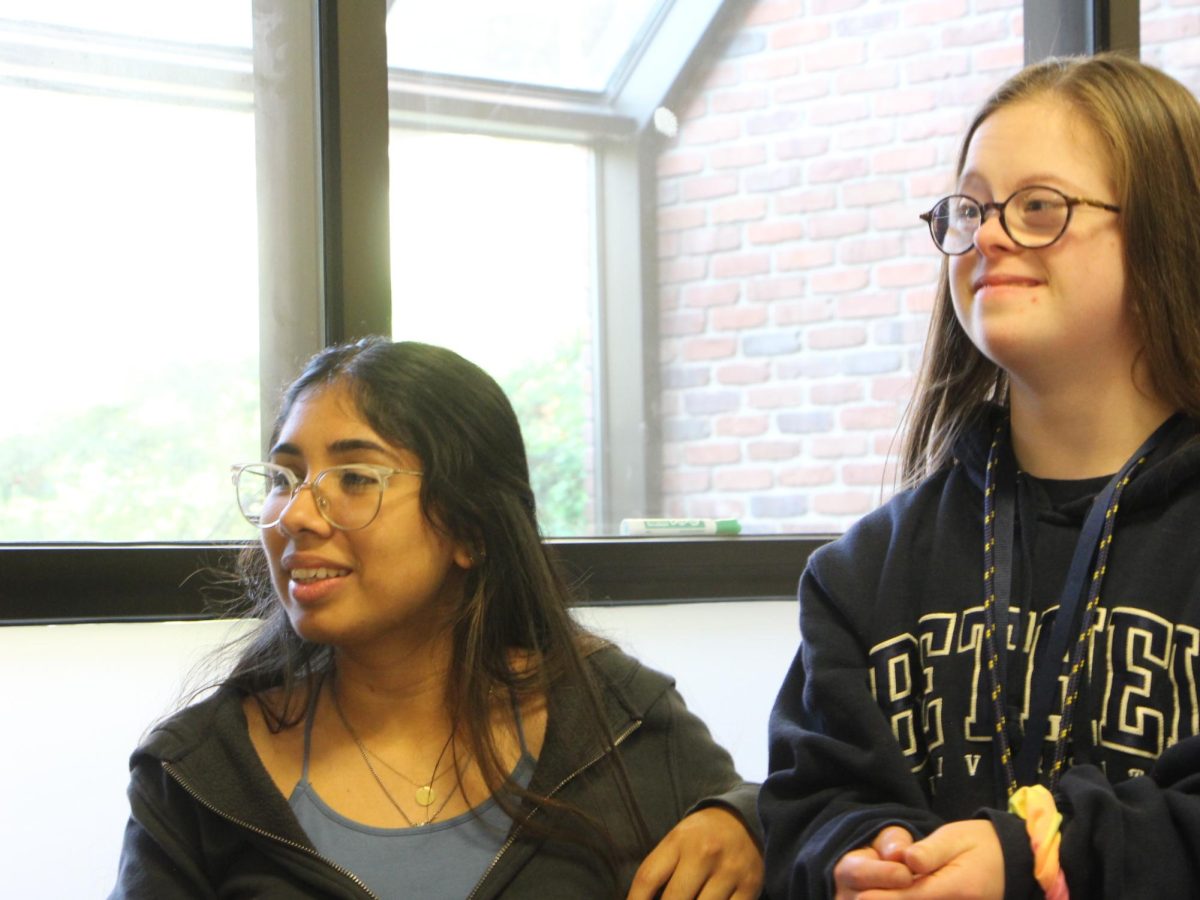Bowling is a Thursday night ritual for students and mentors involved in Bethel’s BUILD program. Vans leave from the CLC Circle around 9 p.m., take a short drive through a construction zone and arrive around the corner at Flaherty’s Arden Bowl. Here, five lanes are reserved, bowling shoes are strapped on and the rounds begin.
For senior special education major Christina Castañeda, this is typical. This week, however, there was a 30-minute delay in their reservation – meaning the group needed to come up with 30 minutes’ worth of ways to stay entertained.
Some students gathered around a galaxy-themed air hockey table, sending pucks across shiny plastic. Another few students huddled around the screen of a Jurassic Park game. Others opted to order some warm, fresh french fries, settling in on high-top chairs.
All the while, Castañeda walked from student to student, passing around a nearing-room-temperature bag of microwave popcorn she brought from her North Village dorm.
“I like Christina for her food,” second-year student in BUILD Maylon Anderson said while laughing.
Just then, Castañeda’s phone lit up with a BeReal notification, and she gathered students to get in for a photo.
“I’ve learned about policies and procedures in class, but the actual interaction from being involved with BUILD is what really helped me to learn,” Castañeda said. “For me, I learn by doing, not by reading.”
Castañeda started as a job mentor, working alongside students in BUILD during their shifts in the Dining Center and Facilities Management. During her sophomore and junior years she lived and worked in freshman housing as a housing mentor, helping students in BUILD acclimate to the independence of dorm life. Castañeda is finishing off her last year at Bethel as an assistant residential supervisor.
This means that as a senior, Castañeda is living in upperclassman housing for the first time.
“I was like, ‘Okay, I’ve gotta get out of here. I don’t have a kitchen or anything,’” Castañeda said. “Now that I’m in North I have my own bathroom and my own kitchen.”
Back in high school, Castañeda was entirely unsure of her future. The prospect of college was intimidating – she knew she would be a first-generation college student with few connections to guide her. It took her repeatedly asking herself, “What am I going to do?” before she decided to schedule a meeting with her high school counselor. In that time together, Castañeda’s counselor talked about the need for special education teachers — more specifically, bilingual teachers of color.
“I’ve always known I wanted to work with people with disabilities in some capacity,” Castañeda said. “My sister has Down syndrome, and she really is the one who changed my life. Everything I do is for her or because of her.”
After Castañeda’s sister Cynthia was born, doctors were unsure to what extent Cynthia would be able to verbally communicate. They were also uncertain about what Cynthia’s physical limitations would be. Castañeda and her parents started learning sign language.
Today, Cynthia is a senior in high school and Castañeda regards her as an excellent dancer, especially with the latest TikTok trends. Additionally, Cynthia is bilingual in English and Spanish, just like her older sister. Castañeda remembers playing on the high school volleyball team, completely missing balls, yet still hearing a loud “That’s my sister!” from the crowd.

“She’s my biggest cheerleader. … It was so discouraging to hear what they expected her to not be able to do,” Castañeda said. “She really surpassed everybody’s expectations.”
Castañeda saw the way the people in Cynthia’s life, specifically her parents and teachers, pushed her to become increasingly independent. This is something Castañeda strives for in her own work with students.
She specifically remembers working with one student who, like many freshmen, had never done his own laundry.
“I don’t know,” he would say to Castañeda. “My mom just does that for me at home.”
The steps of doing laundry sometimes tripped him up – specifically, whether to put the fabric softener in the washer or the dryer. Castañeda stopped him from calling his mom to get the answer every time.
“You’re in college, you’re an adult now,” Castañeda said. “I know you want to have your own job, I know you want to be independent, so you have to do this.”
Castañeda did laundry alongside him a few times, going through the steps. A few weeks later, he called Castañeda, letting her know he was ready for a laundry check. When Castañeda went to take a look, the laundry was neat and folded, with a sticky note on top reading, “All clean!”
Though this student graduated from the BUILD program last spring, Castañeda received a FaceTime call from him earlier this month. He let Castañeda know that he did his laundry, and he did it well.
“I love seeing that journey from freshman year when they’re asking me for reassurance to when they realize they’re really capable of doing it on their own,” Castañeda said. “There’s some people who are like, ‘Let me just do it for you.’ I’m really practicing taking [the students] through the steps I would take and showing them they can do it themselves.”
Castañeda leads cooking classes for students in BUILD. Usually the recipes are given to her by BUILD Supervisor Brady Tongen, but one week Castañeda asked the students, “Do you want to see how my dad cooks?”
The students were eager to try authentic Mexican food, and the next week Castañeda’s dad and Cynthia showed up with a variety of ingredients. Spinach, beans, cilantro, cheese, bread, onion and everything else needed to make molletes and pico de gallo.
“It was funny to see how my dad attracted them,” Castañeda said. “We were just having some good cooking and conversations. It felt like home.”
Castañeda also puts on karaoke nights for the students in the BUILD office. There are a wide variety of music tastes represented throughout the event, from the “Frozen” soundtrack to Neil Diamond. The students aren’t afraid of singing too loud or too off key, putting everything into each song.
“She has this spirit around her that makes people feel like they can be silly,” BUILD Supervisor Brady Tongen said. “When she’s there, people think, ‘I can be myself. I can sing ‘Sweet Caroline’ really off-pitch and that’s okay.’”
As Castañeda approaches graduation, she’s looking to further her education.
“When I get married, I want them to say ‘mister and doctor,’” Castañeda said. “I want more schooling in psychology. I want to understand the brain, how it works and how I can apply it in schools.”
Many disabilities are diagnosed in school, and Castañeda believes schools play an important role in the lives of those with disabilities.
“My sister is speaking two languages and is self-sufficient partly because of the teachers that work so hard,” Castañeda said. “On one hand, I really want to be a teacher. But on the other, the school system can be messed up.”
Right now, Castañeda sees how many schools put students with disabilities in a separate room from students without disabilities for most of their education. She believes this can lead to ostracism from both fellow students and teachers. On top of concerns for students with disabilities, Castañeda is passionate about lessening achievement gaps and reducing the struggles of first-generation students. In one of her field experiences, Castañeda worked with students testing low in reading, many of whom were students of color.
“I don’t want to contribute to something that I don’t necessarily believe is in students’ best interests. How do I make it so that it is?” Castañeda said. “I know that’s a big task, a big goal. I would love to be a teacher and at least touch the individual. I can at least be a good teacher for the few students that I will have.”
For now, Castañeda looks forward to student teaching during the spring semester, as well as another season of Unified Bowling. These weeknights at Flaherty’s will prepare the students and mentors for a tournament put on by the Special Olympics later in the fall semester.
The 30 minutes have now passed with a little help from some air hockey, french fries and popcorn. BUILD students and mentors get their properly-sized shoes, a variety of marble-y, colored bowling balls and head all the way down to lanes 32 through 36. Castañeda opts to watch for this round.
“I’ll be the cheerleader,” she said.






